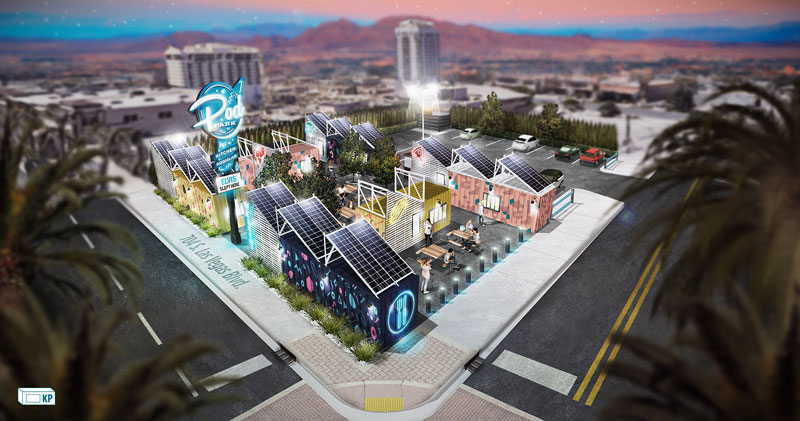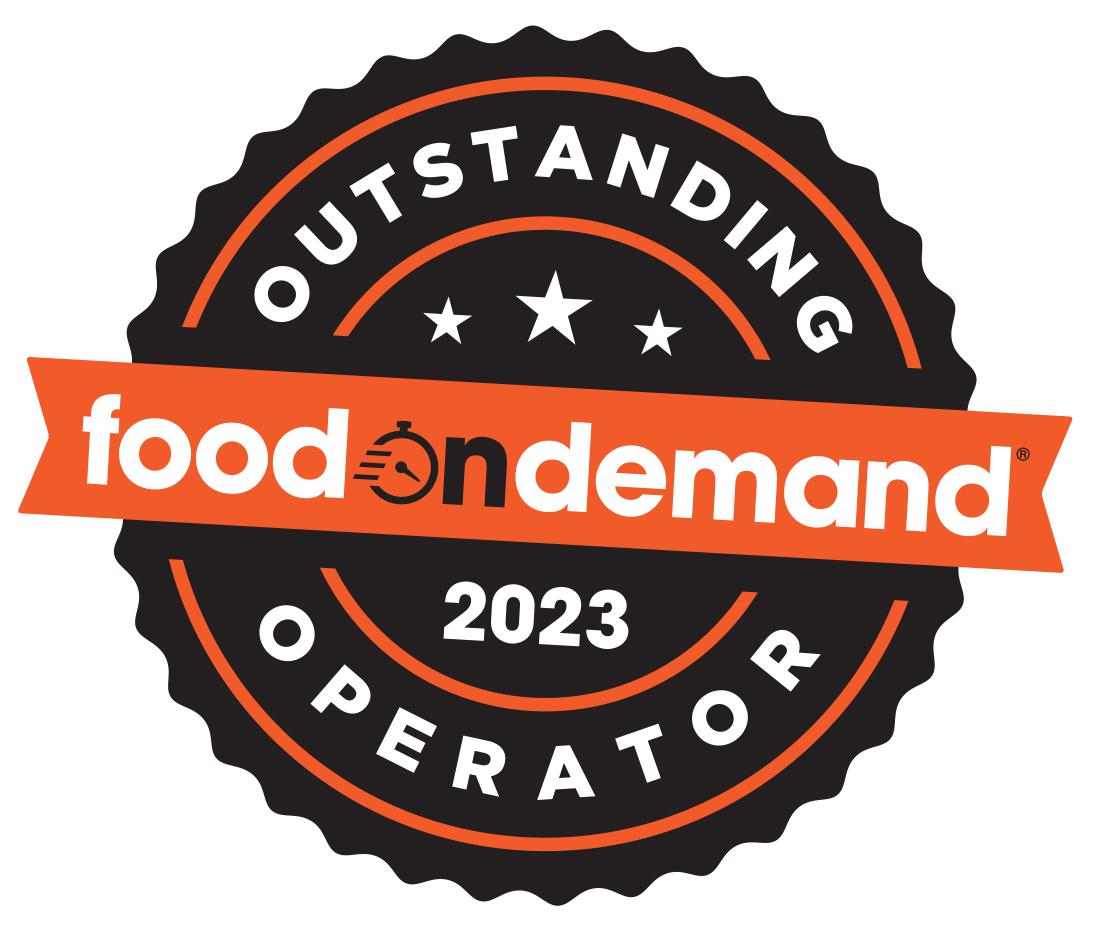Kitchen Podular CEO Michael Manion has placed himself at the leading edge of both the off-premises shift in restaurants and the broader desire for social experiences that’s disrupting many industries beyond foodservice. With a background in flashy in-person events and international nightclubs, he’s now focused on helping restaurants dive into neighborhood pods, which are somewhat like food truck parks, but located in residential neighborhoods rather than brewery parking lots or central business districts.
I encountered my first pod on a recent vacation in Portland, Oregon. Visiting friends in the residential Rose City neighborhood, they suggested we walk a few blocks to a formerly vacant lot that’s now home to several different restaurants in rectangular boxes that look a lot like shipping containers or ice fishing shacks turned into miniature eateries. Walking into the open air space, the crowd ranged from toddlers to seniors—and it immediately felt like something new.
Called The Baerlic Brewing Barley Pod, food choices range from crepes, ramen and arepas to waffles, burgers, chicken sandwiches and a vegan-vegetarian concept each operating out of separate boxes. There’s an open-air brewery with bathrooms in the center, and the property is open from noon to 10 p.m. every day. You should know, the chicken sandwiches were fantastic.
Convertible restaurants
While The Barley pod is a one-off neighborhood food hall hybrid, Kitchen Podular’s concept is more focused on franchised and multi-concept restaurant groups looking to bring in new customers, add delivery volume and side-skirt the shortage of top-shelf restaurant spaces and arduous municipal permitting that’s the norm in most cities.
The company’s founder previously spent years building Budweiser’s large-format mobile assets for the World Series and Super Bowl, among others. He is especially proud of the two-level bars with rooftop patios, with the party trick that just two people could pack them up after the fun. From his perch on the sidelines of foodservice, Manion felt like he was watching a movement begin as third-party delivery took off. After some casual investigation, he decided he wanted to get into catering and delivery with a new form factor.
Manion’s a fast talker as he explains the challenges restaurant operators face in exploring new-age options like ghost and virtual kitchens. Rather than compromising by offering a smaller menu for delivery, he began exploring ways to capitalize on several trends at the same time—bringing the growing prefab house and cabin movement to the restaurant world.
“I don’t necessarily believe that in delivery [and] ghost kitchens you need to make a smaller menu; you need to make a more efficient kitchen,” Manion said. “What we do is develop this kitchen without the plates and silverware, without waiters and waitresses and everything coming into it—we give you this raw, functional and comfortable kitchen to work out of.”
Kitchen Podular’s boxes are built to suit and made with sustainable materials. So far, the largest example is 17 feet by 20 feet, which he said is on the larger end of the spectrum. He stressed that they don’t use shipping containers, some of which are used to carry hazardous materials. His end users sign off on the final product at the factory, which Manion claimed can help operators avoid delays in getting up and running. He said that on-site approval and inherent uniformity is especially appealing for multi-unit brands looking to build many pods in one shot.
A more typically sized pod, 8-and-a-half by 40 feet, costs approximately $150,000, plus equipment that he estimated would range from $75,000 to $100,000. Whether the pod is destined for leased or owned space, getting up and running is just a matter of connecting to utilities, he said.
From my experience as a planning commissioner, it’s likely that many cities would need to modify zoning classifications and grant a conditional use permit for municipalities that are new to the pod movement. Every city is its own box of chocolates or scorpions.
So far, the company has sold approximately 20 pods. “We’re a mobile home park for food,” Manion said, noting that may not be a flattering description. The company is currently building a handful of new pods, and he said getting “as many opened as cheap as we can” is not his approach.
With desirable restaurant spaces in short supply across the country, Manion said part of the appeal is the ability to pick up stakes and move to a new location with only slightly more effort than driving a food truck to a new parking spot.
Kitchen Podular hopes to open its own pod park in its home city of Las Vegas in the coming year. It’s now working with a handful of franchise brands, which are the company’s prime focus.
“We can always go find pads, what we can’t find is strip mall space where we can have a drive-thru,” Manion added. “We make it look like their look and feel, so we might be this box underneath, but on the outside it’s the skin of that brand, just like it is in … whatever storefront they’re in now. You want it to fit in the neighborhood, you can’t just put a box in a parking lot.”




